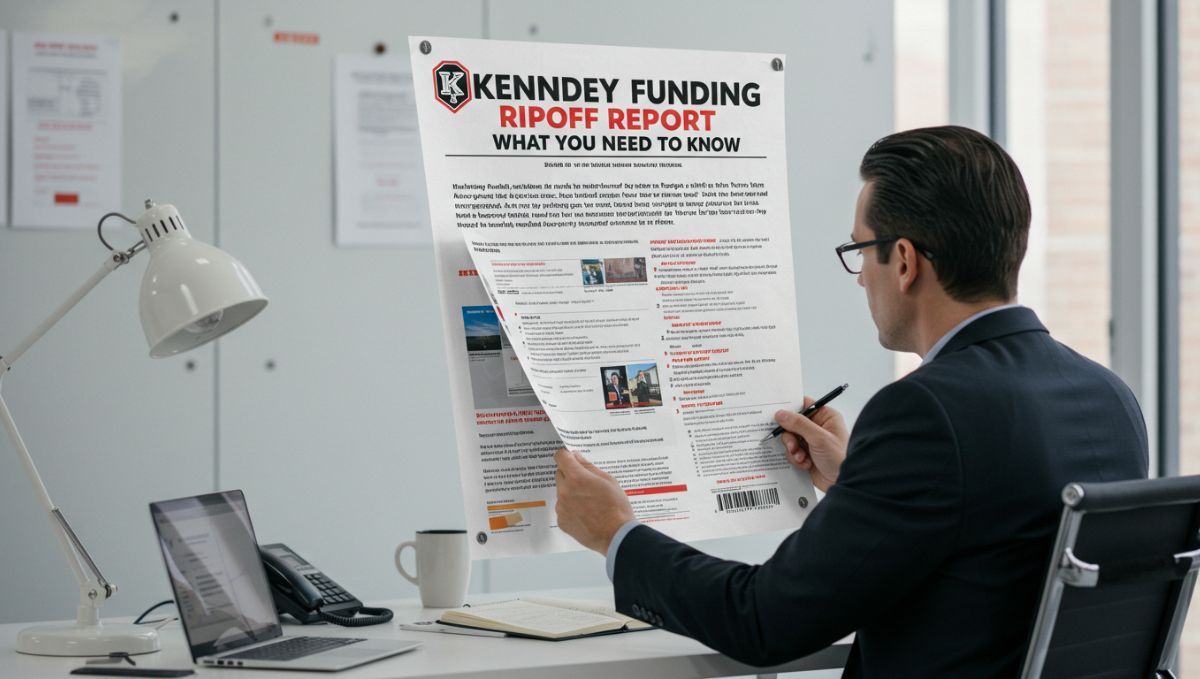When searching for real estate financing, especially for large or unconventional projects, borrowers often turn to private lenders like Kennedy Funding. However, online searches sometimes reveal concerning phrases like “Kennedy Funding ripoff report”, raising red flags for potential clients.
This article examines the origin and credibility of these reports, the nature of complaints against Kennedy Funding, and offers practical advice for anyone considering private lending options.
Who Is Kennedy Funding?
Kennedy Funding is a private, hard-money lender specializing in bridge loans for real estate and commercial development. Based in New Jersey, the company has operated for over 30 years and provides funding for projects across the U.S. and internationally.
The lender is known for:
-
Fast approvals
-
Lending on distressed or non-traditional properties
-
Providing loans when traditional banks won’t
Their reputation in the industry is a mix of success stories and controversial feedback, which fuels public interest in reviews and ripoff reports.
Understanding the “Ripoff Report” Platform
The term “Kennedy Funding Ripoff Report” commonly refers to the website RipoffReport.com, where users post complaints about companies they believe have wronged them. However, it’s important to understand:
-
Anyone can post a report without verification.
-
Companies are not allowed to remove reports, even if false.
-
Reports can remain online indefinitely, impacting reputation.
Because of this, even one-sided or outdated issues can appear in searches for years.
Common Complaints Against Kennedy Funding
1. Upfront Fees Without Loan Approval
Some borrowers allege they paid upfront fees (for due diligence, appraisals, legal reviews) only for the deal to fall through later—leading to frustration and claims of being scammed.
2. High Interest Rates
As a hard money lender, Kennedy Funding often charges higher-than-average interest rates, which can surprise borrowers unfamiliar with private lending norms.
3. Loan Denial After Commitment
A few reports claim loans were “promised” but never funded. In some cases, this stemmed from borrowers misunderstanding non-binding letters of intent (LOIs) as guaranteed approvals.
4. Aggressive Collection Practices
There are occasional complaints about Kennedy being aggressive in loan defaults, including quick foreclosure actions—though this is a common characteristic of hard money lending in general.
Are the Ripoff Reports Legitimate?
It’s difficult to verify every claim, but key points should be considered:
-
Some complaints are from borrowers with unrealistic expectations, hoping for bank-like terms from a private lender.
-
Many successful loans and client testimonials are available on Kennedy Funding’s website and third-party platforms.
-
Legal documents and terms are often misunderstood by borrowers, leading to later frustration and blame.
While no company is immune to criticism, many of the ripoff reports seem to stem from poor communication or mismatched expectations, rather than outright fraud.
Red Flags or Due Diligence?
Borrowers should always perform due diligence before working with any lender, especially in the private financing sector. Here are some steps to take:
-
Read all agreements carefully before paying upfront fees.
-
Consult a real estate attorney before signing a letter of intent or loan agreement.
-
Ask for references or case studies from previous borrowers.
-
Understand that private loans come with higher risk and cost compared to traditional bank loans.
Kennedy Funding’s Response to Complaints
Kennedy Funding has, in some cases, responded to criticism by emphasizing:
-
Their role as a non-bank lender, serving high-risk or time-sensitive clients
-
The need for borrower transparency and cooperation during underwriting
-
That fees cover actual services rendered, regardless of loan approval outcome
They’ve also highlighted their successful closings and loan amounts funded across various industries and countries, countering the idea of being a “ripoff” with real performance data.
What You Should Know Before Borrowing
Before engaging any hard money lender, including Kennedy Funding, keep these tips in mind:
1. Private Lending Is Not for Everyone
These loans are best for experienced borrowers, developers, or investors who understand the risks and rewards.
2. Not All Deals Will Close
Approval depends on many variables—property condition, borrower credibility, title issues, market factors. A deal falling through doesn’t automatically mean fraud.
3. Expect Higher Costs
Interest rates, origination fees, legal costs, and appraisals are typically higher than traditional lending.
4. Be Wary of Promises Without Contracts
If a lender guarantees funding without documentation, be cautious. Always get terms in writing.
Alternatives to Kennedy Funding
If you’re concerned about complaints or prefer to compare options, consider:
-
Lima One Capital – Offers real estate investor loans with more structured terms.
-
RCN Capital – Popular among fix-and-flip investors with fast funding times.
-
Local private lenders – May offer more flexible and personalized terms.
Each lender has pros and cons. It’s essential to match your project type and risk profile to the lender that best fits your needs.
Conclusion
The phrase “Kennedy Funding ripoff report” might catch your eye during due diligence, but a closer look reveals a more nuanced picture.
Kennedy Funding is a legitimate private lender with a long track record. While not every borrower has a positive experience, and while some complaints are valid, many issues stem from misunderstandings about how hard money lending works.
If you’re considering Kennedy Funding:
-
Do your homework
-
Read every agreement
-
Talk to past clients
-
Understand the financial risks
And above all, enter the relationship as you would any business deal—well-informed and prepared.
